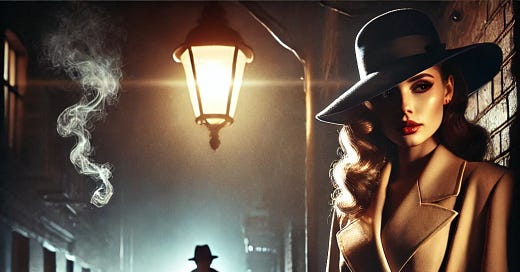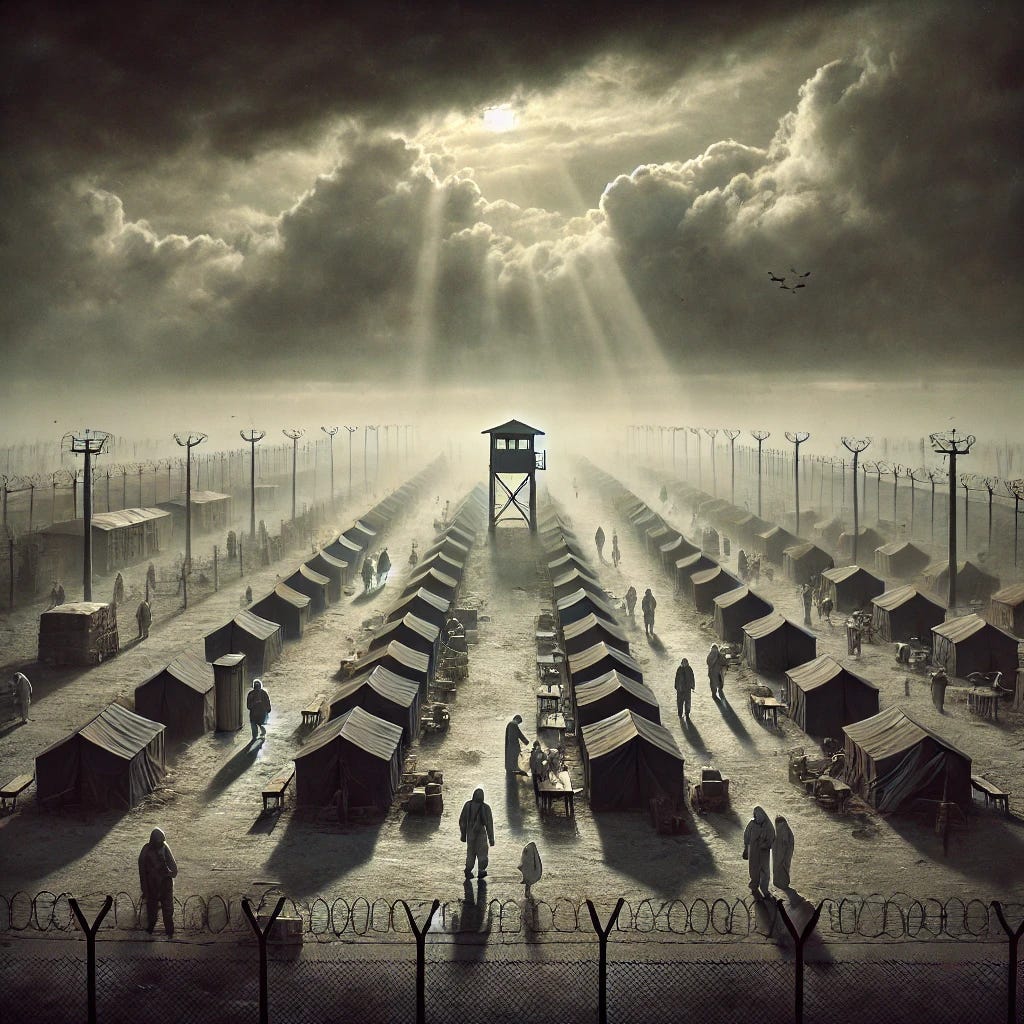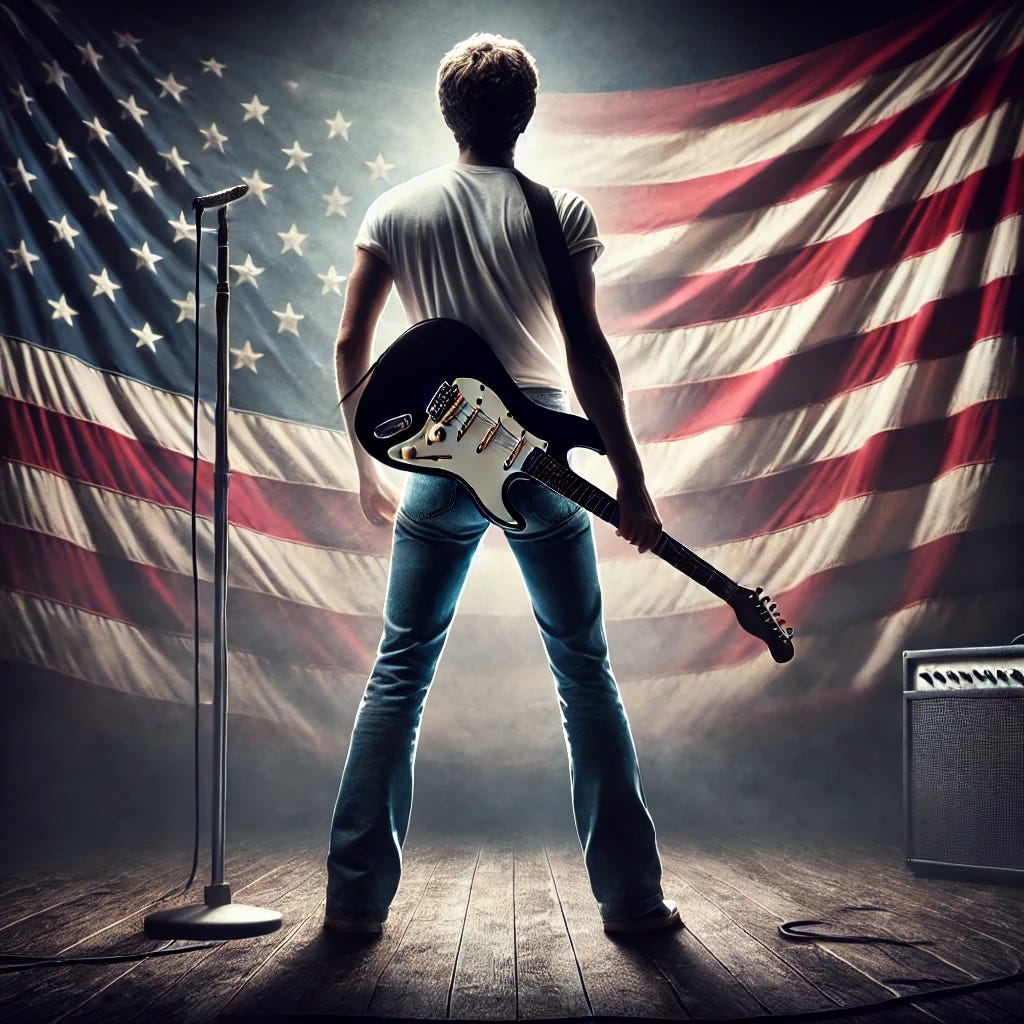My third poetry collection, Film Noir and Other Poems, is now available for free download here: https://www.dropbox.com/scl/fi/h0umyh5b2vcw9ksp4p04h/Turfseer-Poetry-Vol.-3.pdf?rlkey=50cldv4p0zyztuje4kiglw0k1&st=66oc98dy&dl=0
This collection features eight personal and reflective poems, each drawing from different interests in my life:
1. The Winning Ticket – A fleeting moment of luck, a life-changing bet, and the thrill of victory—only to discover that fortune is never truly free.
2. Film Noir – Shadows and deception weave a deadly game between a hardened detective and a femme fatale, where trust is a luxury no one can afford.
3. It’s a Wonderful Life – A nostalgic look at a small town draped in Christmas lights, where the warmth of community is both a gift and a burden.
4. The Quarantine Camp – A bleak and chilling reflection on confinement, fear, and the erosion of freedom under the guise of public health.
5. The Boss – From working-class hero to establishment mouthpiece—this is the tale of a man who once ran but now marches in step with the powers that be.
6. Germ Theory – The battle between two scientific visions: one that shaped modern medicine and one that was buried, raising questions about what we truly know about disease.
7. Young and Dumb – A tragic cycle of neglect, crime, and irreversible mistakes—one young man’s journey from childhood pain to a lifetime behind bars.
8. Misinformation – Lies, censorship, and the manufactured truth—how those who claim to fight disinformation often become its greatest architects.
Special thanks to ChatGPT, who helped shape some of these moments into verse that surprised even me.
Here are two of the poems from the collection. Remember to download the entire collection by pasting the above link into your browser.
The Quarantine Camp
In the shadow of a broken republic,
where liberty is recast as recklessness,
a law stands stripped of its spine,
hollowed out by edicts cloaked in urgency.
The air reeks of fear,
a smokescreen for power,
and behind closed doors,
the gavel betrays the Constitution.
They call it "health,"
a word now weaponized,
its syllables twisted to unlock doors
to cages we never imagined.
No proof, no hearing—
just whispers of suspicion,
and the knock of a badge
on the threshold of your life.
The camps rise in their grim symmetry,
chain-link fences slicing the sky.
Inside, time melts,
days folding into one another
under the weight of indefinite confinement.
A child clutches a worn teddy bear,
its seams unraveling
like the promises of justice.
An elderly man stares through the wire,
eyes clouded with the ache of disbelief.
The courts, those last bastions of reason,
stand complicit,
their silence thunderous.
Robed figures bow to their masters,
inking decrees in the shadows—
judges turned executioners
of the public trust.
Where are the voices?
Where is the outcry?
Muted by the hum of compliance,
drowned beneath the rhetoric of "safety."
This is the triumph of the unelected,
the bureaucratic hands
tightening the noose of unchecked power.
And yet, in the hearts of the defiant,
embers still glow.
Whispers of dissent gather force,
like winds before a storm.
The tethered remember freedom’s taste,
its sharp, unyielding bite,
and refuse to let it fade
into the gray haze of submission.
A reckoning will come,
when the people rise,
their voices a clarion call,
a shield against the encroaching darkness.
Until then, the camps remain,
silent monuments
to a nation at war with its soul.
The Boss
Once, he was the voice of the restless,
a champion of the small towns
and steel-stained streets.
His words were gospel for the disenchanted,
and the roar of the E Street Band
echoed freedom’s ache.
But time eroded the myth—
or maybe just revealed it.
Now the Boss stands,
not in rebellion,
but on the side of the machine,
a spokesman for compliance,
a troubadour for mandates.
"Put on a fucking mask," he spat,
as if the anthem of a generation
could be reduced to a government slogan.
His gravelly wisdom,
once a call to break the chains,
became a chain itself,
rusted and sharp.
He scorned the unmasked,
drew battle lines in song and speech,
and when the bodies piled,
when the young fell silent,
he called it "normal."
A shrug, a dismissal,
as if the tragic chorus
of collapsing hearts and vanished voices
were just the natural refrain
of fame’s cruel melody.
But the road was never this treacherous.
The tramps who were born to run
didn’t drop mid-stride,
didn’t vanish before the final verse.
The deaths, sudden and strange,
aren’t “just the way it is.”
They’re a eulogy for silence,
a requiem for truth buried deep.
Springsteen sings still,
but the streets no longer sweat with dreams.
They’re choked with ash and echoes,
with questions unanswered,
and the ghostly refrain
of what his music once meant.
The Boss, now a shadow of rebellion,
stands not against the tide,
but lets it sweep him along,
his voice one of many in the choir
that silences dissent,
turns grief into propaganda,
and masks the truth
in the name of safety.
And yet, the music lingers,
reminding us of what was lost—
not just the lives,
but the ideals.
The open road now feels narrower,
the chrome wheeled, fuel-injected dreams
dulled by betrayal.
The Boss forgot the promise:
to never stop running,
to break the traps,
to live wild and free.
But maybe it’s not too late—
for us, if not for him—
to remember what it means
to truly fight,
to refuse the easy chorus,
to write our own verse.





